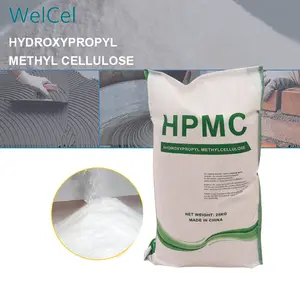
Cellulose HPMC Industrial Grade Cellulose Hpmc 200000 Cps Hydroxy Propyl Methyl Cellulose Chemical Raw Materials For Mortar Wall Putty


Cellulose Hydroxyethyl Cellulose White Or Slightly Yellow Efficient Non Ionic Thickener For Surface Coatings























Cellulose, a natural polymer found in the cell walls of plants, stands as a cornerstone in the textile industry. This organic compound is pivotal in manufacturing a myriad of fabric products, owing to its versatility and beneficial properties. In the realm of textiles, cellulose fiber is renowned for its ability to enhance fabric quality, imparting softness and durability to a variety of yarns.
The textile sector utilizes various forms of cellulose, each with unique characteristics. Hydroxyethyl cellulose and carboxymethyl cellulose are water-soluble derivatives commonly used to augment fabric feel and strength. These compounds are compatible with numerous synthetic fibers, such as polyester and nylon, providing a versatile solution for textile enhancement. Additionally, microcrystalline cellulose, a refined form known for its robustness, is another variant extensively used in the industry.
Incorporating cellulose into textiles serves to elevate the tactile experience, ensuring garments remain comfortable even after prolonged use. The application of hydroxypropyl methyl cellulose and similar derivatives helps maintain the integrity of fabrics, safeguarding against contamination and damage. These cellulose types are favored for their safety profile, acting as eco-friendlier alternatives to traditional chemicals used in fabric processing.
Proper storage of cellulose compounds is crucial to preserve their efficacy. Products like nitro cellulose and hydroxypropyl cellulose are often supplied in sealed containers to minimize exposure to air, which could compromise their quality. A dry and cool environment is recommended for storage, ensuring a prolonged shelf life and consistent performance in textile manufacturing processes.
Suppliers on Alibaba.com offer cellulose in various grades, ensuring an optimal level of purity and pH for textile applications. The packaging is a critical aspect, with most suppliers providing durable containers to prevent leakage and preserve the product during transit. Bulk purchasing options are available, allowing factories and workshops to maintain an adequate supply for their production needs.
Selecting the appropriate type of cellulose is essential for textile manufacturers aiming to produce high-caliber fabric items. Options such as carboxy cellulose and microcellulose offer distinct benefits, from enhancing fabric strength to improving softness. Alibaba.com hosts a diverse range of suppliers, enabling businesses to find cellulose products that meet their specific manufacturing needs without compromising on fabric quality.